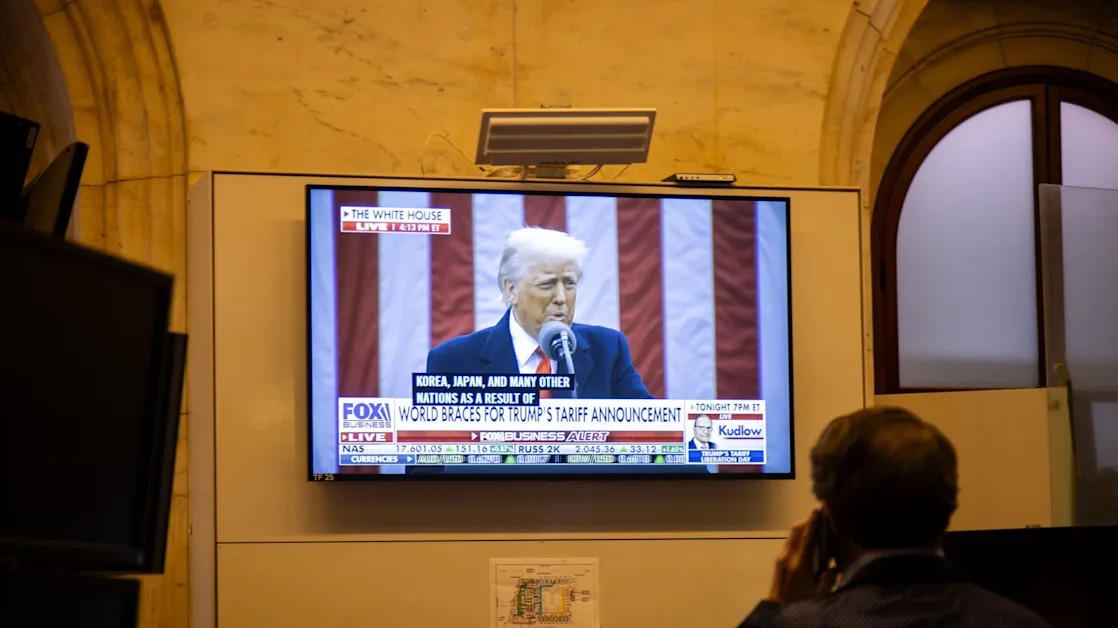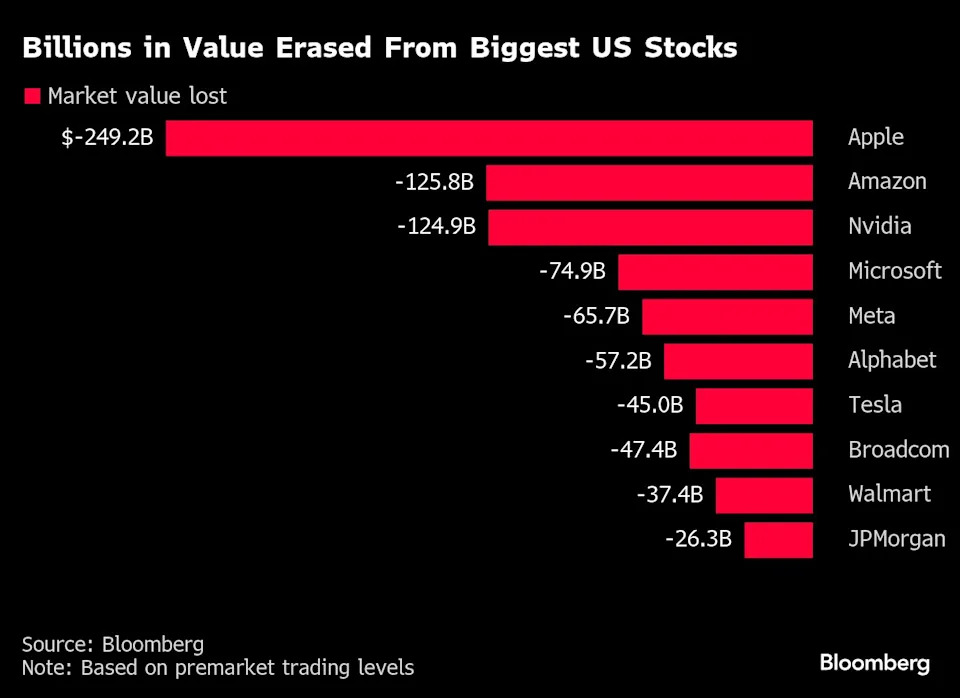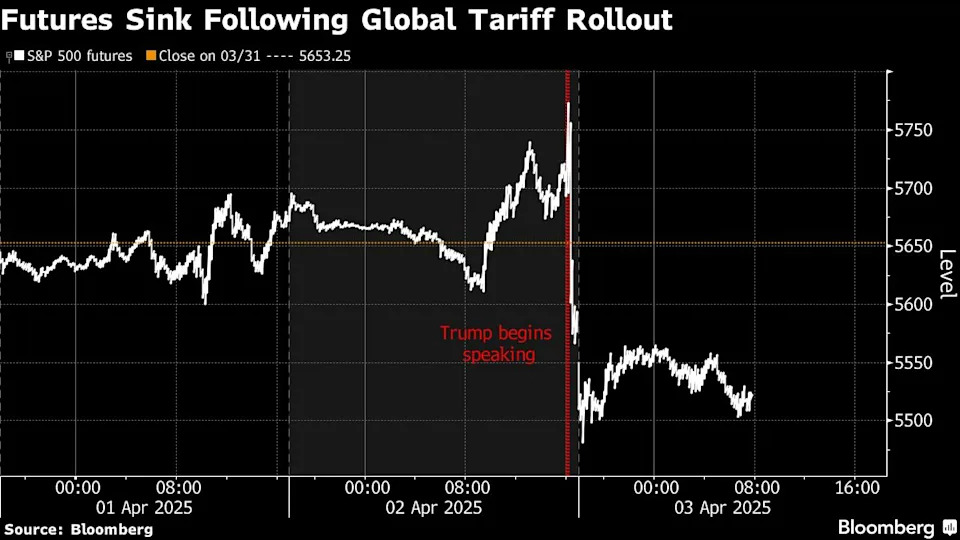
Trump Tariffs Wipe Out Nearly $2 Trillion From US Stock Market
(Bloomberg) — Roughly $1.7 trillion was erased from the S&P 500 Index at the start of trading on Thursday amid worries that President Donald Trump’s sweeping new round of tariffs could plunge the economy into a recession.
Most Read from Bloomberg
The damage was heaviest in companies whose supply chains are most dependent on overseas manufacturing. Apple Inc., which makes the majority of its US-sold devices in China, was down about 8% after the open. Lululemon Athletica Inc. ( LULU ) and Nike Inc. ( NKE ), among companies with manufacturing ties to Vietnam, were down around 10%. Walmart Inc. ( WMT ) and Dollar Tree Inc. ( DLTR ), retailers whose stores are filled with products sourced outside of the US, were trading lower by about 2% and around 11%, respectively.
Listen to the Here’s Why podcast on Apple, Spotify or anywhere you listen
Few stocks in the US were unscathed with the benchmark index on pace for its biggest decline since 2022. Roughly 70% of companies in the S&P 500 were trading lower at 9:35 a.m. in New York, with almost half of its 500 stocks down at least 2%.
“There’s really not anybody getting spared in absolute terms,” said Garrett Melson, a portfolio strategist at Natixis Investment Managers Solutions. “You’re just wrapped up, today at least, in a broad de-risking, and so it’s kind of just across the board taking chips off the table.”

The breadth and severity of the levies dwarfed those imposed by Trump during his first term, threatening to upend global supply chains, exacerbate an economic slowdown and boost inflation. It also left investors struggling to game out what levies would do to corporate profits.
If Apple, for example, were to absorb the jump in costs as a result of tariffs on China, the iPhone maker’s gross margin could take a hit of as much as 9%, said Citigroup analysts led by Atif Malik.
The plan is equivalent to the largest tax increase since 1968, JPMorgan economist Michael Feroli wrote in a note. It could add as much as 1.5% to prices this year, using the Federal Reserve’s preferred inflation gauge, while weighing on personal incomes and consumer spending.

“This impact alone could take the economy perilously close to slipping into recession,” Feroli wrote. “And this is before accounting for the additional hits to gross exports and to investment spending.”